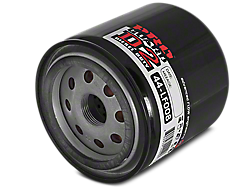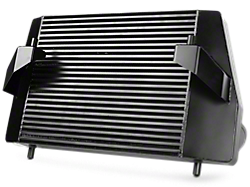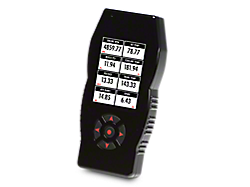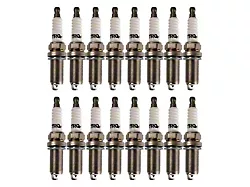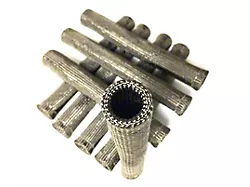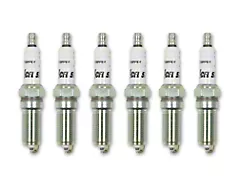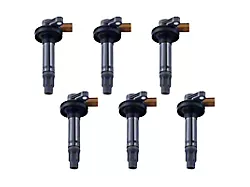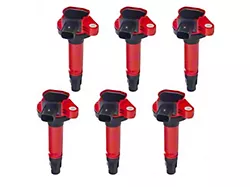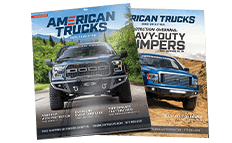What is Part of the F150 Ignition System & What Does It Do?
The ignition system contains every part that helps to power your F150 as well as spark the fuel to power the engine. The F150 ignition system consists of the following parts:
- Battery
- Alternator
- Starter
- Spark plugs
- Ignition coils
The battery powers your whole F150, from the radio to the starter and everything in between. While you drive, or rather while the truck is running, the alternator recharges the battery. The battery powers your starter motor that gets the truck’s engine to turn over.
The starter initiates the ignition cycle, getting the motor running. Power gets sent to the ignition coils, which pass on the power to the spark plugs, igniting the fuel in the cylinder(s). While you drive your F150, the battery continues to power the coils and the spark plugs, allowing the ignition cycle of your F150’s engine to continue to perform flawlessly.
F150 Batteries Explained
The battery supplies your F150 with the charge it needs to power your entire truck and all of its accessories. The battery is one of many components on your truck you do not want to cheap out on; with a cheap knock-off brand battery, you will spend more money and have more headaches than if you did it right the first time.
One of the ratings batteries are judged by is their amps, and how much power they can give off. How many amps a battery has will impact how quickly your truck turns over and even how strong it runs. Generally, more amps are a good thing, but check your owner’s manual for the recommended power range for your F150.
An F150 battery should last your truck for about 4 – 6 years, but will vary depending on how often your drive or don’t drive your truck.

High Performance Battery
What is an Alternator?
The alternator allows your battery to be the gift that keeps on giving as it replenishes the charge. The alternator takes mechanical energy and converts into electrical energy by using an alternating current (hence the name). Alternators consist of three main parts: the stator, the rotor, and a diode. As the alternator belt rotates (which is attached to and powered by your engine), the rotor inside the alternator spins inside a group of copper wires, creating electricity.
The rotor inside the alternator is made up of a bunch of magnets, which when rapidly spun inside a bundle of copper wires goes through a process called electromagnetism. When attached to a diode, this new electricity is changed from AC to DC current, the type of current your F150’s battery can use.
Over time, alternators can wear out on the inside and eventually fail, needing to be replaced. You will know your alternator is dying, as it won’t recharge your battery, causing your F150 to shut off or not turn on at all.
Alternators, like batteries, are rated by the amount of amps they can put out. Alternators will run anywhere from about 110 amps all the way up to a little over 200 amps, but how your truck is modified will determine the type of alternator you need. If you have a bone stock F150, a 130 amp alternator should be quite sufficient for your needs. If you have a heavily modified F150 that has an upgraded sound system, various auxiliary outputs (a winch, lightbar, etc), then you will need a heavy-duty alternator, such as a 200 amp model.

200 Amp Alternator
F150 Starters Explained
The starter is a very specialized in the ignition system as its only goal is to get your F150 to turn over. The starter is a small electronic motor that uses torque to get your engine going by using a gear system that attaches to the engine’s flywheel. The starter gets the flywheel going that then kick starts the whole engine.
You activate the starter when you turn your key all the way over when you are trying to turn your vehicle on. If you start your engine but keep the key all the way over, powering the starter, the internal motor on the starter will burn itself up and die.
When it comes to aftermarket F150 starters, you are shopping for more of a maintenance item than a performance one. Starters are used for their one job and that’s about it. When it comes to buying a replacement starter for your F150, try and go with either the OEM one or a starter that is backed by a warranty.

High Output Starter
Where do Spark Plugs Com In?
Spark plugs are what ignite the fuel in the cylinder during the ignition/intake process. Spark plugs are powered by the coil packs and use a spark of electricity to ignite the fuel. F150’s use a two-piece spark plug design, a design that is bemoaned by anyone who has had to change them. The two-piece design can break apart when removing/changing the spark plugs, making the process more difficult than it should be.
Spark plugs play a pivotal role in your F150’s engine performance, as a bad or dirty spark plug in just one cylinder will greatly hinder the output of your engine. Replacing and upgrading your plugs to a set of aftermarket F150 spark plugs will give you a bump in power and fuel economy.
Spark plugs should be checked every 20,000 miles and replaced about every 50,000-65,000 miles depending on how they look when you check them. Ideally, what you want to look for in a spark plug is one that uses a copper core and platinum tip as this will provide the greatest amount of conductivity and spark.

Performance Spark Plugs
When Should I Upgrade my Coil Packs?
Just as important as the spark plugs in your F150’s engine are the coil packs sitting atop of the engine. The coil packs supply the spark plugs with power, working as a connection point between the plugs and the battery.
Replacing or upgrading your ignition coils is really only necessary if you are demanding more of your engine, such as you upgrade it with a turbo or supercharger. Even without the addition of forced induction, naturally aspirated F150 engines will benefit from coil packs by receiving additional horsepower (5-25 HP) and increased fuel economy.

Blue Ignition Coils Installed
Shop All Truck Accessories & Parts
Fitment Includes:
- 1997, 1998, 1999, 2000, 2001, 2002, 2003, 2004, 2005, 2006, 2007, 2008, 2009, 2010, 2011, 2012, 2013, 2014, 2015, 2016, 2017, 2018, 2019, 2020, 2021, 2022, 2023 and 2024 F150s
- Base Model, XL, XLT, Lariat, Lightning, King Ranch, Harley Davidson,STX, FX2, FX4, Limited, Platinum, Raptor
- 2.7L EcoBoost, 3.5L V6, 3.5L EcoBoost, 3.7L V6, 4.2L V6, 4.6L V8, 5.0L V8, 5.4L V8, 6.2L V8
*Please see product pages for any exceptions.

